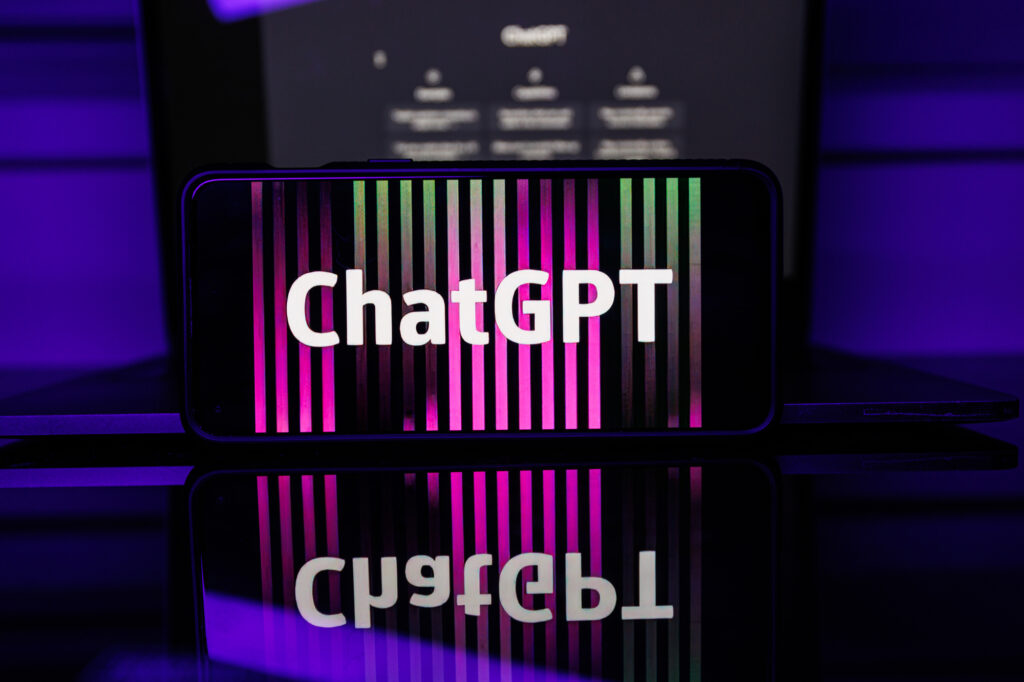Introduction
Artificial intelligence (AI) has become a significant force in various industries, and e-commerce is no exception. One particular AI technology that has been making waves is ChatGPT from the American start-up OpenAI. With its ability to generate human-like responses, ChatGPT has the potential to revolutionize customer interactions and improve overall user experience in the e-commerce sector. In this blog post, we will explore the impact of ChatGPT on e-commerce and discuss its various applications.

OpenAI: Pioneer in Speech AI Development
OpenAI, with support from notable investors like Elon Musk and Microsoft, has been at the forefront of AI research and development. The company introduced GPT-3 (Generative Pre-Trained Transformer), a powerful language model capable of generating coherent sentences and word groups using over 175 billion parameters. This makes GPT-3 one of the most advanced language models available today.
Unlocking the Potential of Artificial Intelligence
According to Edward Lenssen, CEO of Dutch software company Beech IT, AI-driven dialogues between computers and humans are just scratching the surface of what AI can achieve. OpenAI’s decision to release ChatGPT for public use is an indication that there is more to come in terms of AI applications. Competitors like Google are also working on their own AI projects, further fueling the development and innovation in this field.
Impact on Internet Marketing and Business
The integration of AI, specifically ChatGPT, into internet marketing and business practices opens up new avenues for growth and profitability. Here are some key areas where AI can make a significant impact:
1. Insights and Trends Identification
AI-driven insights can help marketers identify trends by analyzing vast amounts of data quickly. By understanding customer behavior patterns, businesses can tailor their marketing strategies accordingly and stay ahead of competitors.
2. Targeted Audience Engagement
ChatGPT can assist in targeting specific audiences by personalizing communication and delivering relevant content. By understanding customer preferences and needs, businesses can create highly targeted marketing campaigns that resonate with their audience.
3. Enhanced Customer Service
AI-driven chatbots powered by ChatGPT can provide personalized customer service experiences 24/7. These chatbots can handle customer queries, provide product recommendations, and even assist with purchase decisions. This level of personalized interaction increases customer satisfaction and improves overall brand perception.

4. Automation of Time-Consuming Tasks
AI-driven automation can streamline various time-consuming tasks, such as data analysis, website optimization, and email marketing. By automating these processes, businesses save valuable time and resources while ensuring efficiency and accuracy.
Writing Effective ChatGPT Prompts for E-commerce
To maximize the benefits of ChatGPT in e-commerce, it is crucial to write effective prompts that engage customers and lead to desired actions. Here are some tips for writing compelling ChatGPT prompts:
1. Be Clear and Precise
When crafting ChatGPT prompts for e-commerce, clarity is key. Use language that is easy to understand and avoid technical jargon or complex terms that may confuse your customers. Keep the prompts concise so that users can quickly grasp the information they need without wading through lengthy text.
2. Use Natural Language
Make sure to use natural language in your ChatGPT prompts to create a conversational tone that resonates with your customers. Positive language encourages action, so consider using phrases like “Please enter your shipping information” instead of negative instructions like “Don’t forget to enter your shipping information.”
3. Vary Prompts
To keep customers engaged with ChatGPT, it’s important to use a variety of prompts throughout the conversation. Asking about their day, discussing current events, or telling jokes can help maintain interest and prevent customers from getting bored.
4. Identify Frequently Asked Questions
Anticipating and addressing frequently asked questions (FAQ) is crucial for providing a seamless customer experience. Program your ChatGPT to provide accurate answers to common queries such as product pricing, shipping options, and return policies. Additionally, use ChatGPT to upsell or cross-sell related products based on customer inquiries.
5. Inform Customers about Sales and Stock Levels
Leverage ChatGPT to inform customers about ongoing sales, discounts, and available stock levels. This real-time information can help drive purchases and create a sense of urgency among customers.
6. Personalize Customer Interactions
ChatGPT can generate personalized responses based on customer queries, enhancing the overall customer experience. For example, if a customer wants to know the availability of a particular product, ChatGPT can provide detailed information about stock levels and estimated delivery dates.
7. Streamline Customer Service Processes
ChatGPT can be used to handle various customer service requests, such as returns or exchanges. By generating responses that outline the necessary steps for these processes, businesses can save time and resources while providing timely assistance to their customers.
8. Create Compelling Product Descriptions
Take advantage of ChatGPT’s ability to generate engaging content by using it to create compelling product descriptions. Highlight unique selling points, benefits, and features in a way that captivates customers’ attention and persuades them to make a purchase.
9. Improve Product Recommendations
Leverage ChatGPT’s capabilities to provide personalized product recommendations based on browsing and purchasing history. By suggesting similar or complementary products that align with customers’ preferences, businesses can drive repeat purchases and foster customer loyalty.
10. Convey Context in Prompts
Creating context in your ChatGPT prompts is essential for establishing a connection with users. Providing a backstory or personality to your chatbot makes the interaction more relatable and engaging. Additionally, ensure that your prompts offer detailed content so users know what to expect from the conversation.
11. Generating Content for Social Media
ChatGPT can also be harnessed to create engaging content for social media platforms. Whether it’s crafting catchy captions for product photos or writing posts that highlight key features, ChatGPT’s creative abilities can help businesses effectively promote their products and reach a broader audience on social media.

Testing and Feedback
Before implementing ChatGPT prompts on your e-commerce website, it is crucial to thoroughly test them to ensure their effectiveness. Create a test account and walk through various customer journeys using the prompts. Assess the user experience, including adding items to the cart, completing purchases, and receiving customer service support. Incorporate feedback from users to refine and enhance the prompts, showing your commitment to providing an exceptional customer experience.
Conclusion
The usage of ChatGPT in e-commerce has tremendous potential in transforming customer interactions and improving business outcomes. By leveraging AI-driven chatbots powered by ChatGPT, businesses can enhance customer service, automate tasks, personalize communication, and boost sales. Writing effective ChatGPT prompts is key to maximizing these benefits and creating meaningful interactions with customers. As AI technology continues to evolve, embracing innovations like ChatGPT will become increasingly important for staying competitive in the fast-paced world of e-commerce.